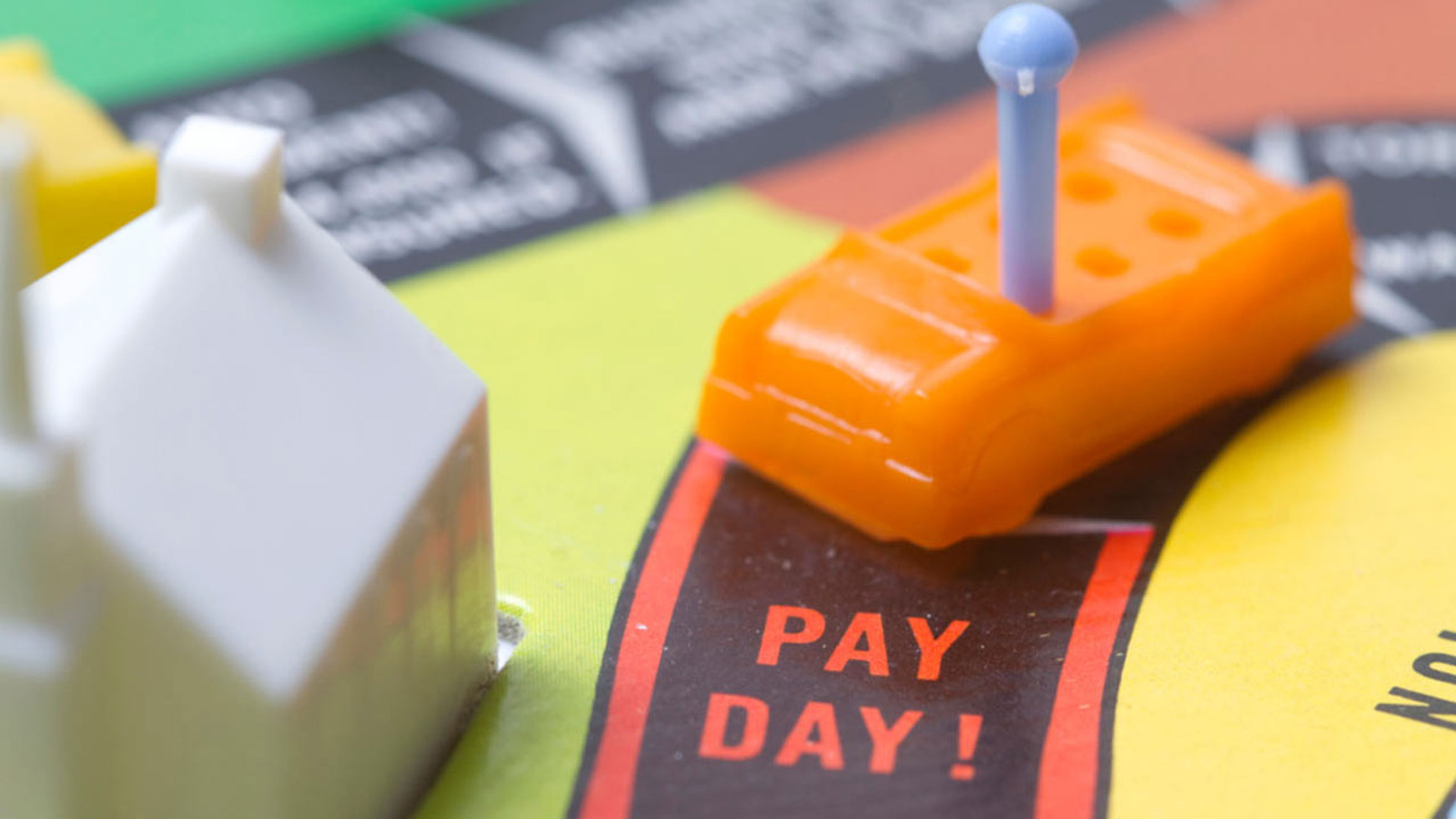Navigating a No-Bonus Terrain
Six tips to keep your finances on track when the bonus you usually look forward to won’t be coming this year.


Profit and prosper with the best of Kiplinger's advice on investing, taxes, retirement, personal finance and much more. Delivered daily. Enter your email in the box and click Sign Me Up.
You are now subscribed
Your newsletter sign-up was successful
Want to add more newsletters?

Delivered daily
Kiplinger Today
Profit and prosper with the best of Kiplinger's advice on investing, taxes, retirement, personal finance and much more delivered daily. Smart money moves start here.

Sent five days a week
Kiplinger A Step Ahead
Get practical help to make better financial decisions in your everyday life, from spending to savings on top deals.

Delivered daily
Kiplinger Closing Bell
Get today's biggest financial and investing headlines delivered to your inbox every day the U.S. stock market is open.

Sent twice a week
Kiplinger Adviser Intel
Financial pros across the country share best practices and fresh tactics to preserve and grow your wealth.

Delivered weekly
Kiplinger Tax Tips
Trim your federal and state tax bills with practical tax-planning and tax-cutting strategies.

Sent twice a week
Kiplinger Retirement Tips
Your twice-a-week guide to planning and enjoying a financially secure and richly rewarding retirement

Sent bimonthly.
Kiplinger Adviser Angle
Insights for advisers, wealth managers and other financial professionals.

Sent twice a week
Kiplinger Investing Weekly
Your twice-a-week roundup of promising stocks, funds, companies and industries you should consider, ones you should avoid, and why.

Sent weekly for six weeks
Kiplinger Invest for Retirement
Your step-by-step six-part series on how to invest for retirement, from devising a successful strategy to exactly which investments to choose.
Many people in the workforce are experiencing pay cuts during the current downturn. I’ve heard from some clients who aren’t expecting a bonus check this year and possibly no salary increase or bonus next year. Normally, when possible, I try to encourage them to live on their salary and to keep the bonus as the gravy in their plan to help save for their financial future. However, for people in sales positions who generate the bulk of their pay from commissions, that’s not a possibility.
For those experiencing a pay cut or loss of bonus during the pandemic, the financial goal is to weather the storm until it’s over and come out as unscathed as possible. To that end, here are six tips to help you navigate this new climate to minimize any damage to your long-term wealth:
First, Evaluate Your Monthly Budget
Many of my clients set aside funds for travel this year that will no longer be spent. The trips they planned will be wrapped into next year’s budget, since they only have so much time off. Others are spending less on entertainment, dining out, transportation and even clothes and other personal expenses, such as haircuts. As a result, the typical household may be able to save several thousand dollars this year that can be used to pay for essential expenses.
From just $107.88 $24.99 for Kiplinger Personal Finance
Become a smarter, better informed investor. Subscribe from just $107.88 $24.99, plus get up to 4 Special Issues

Sign up for Kiplinger’s Free Newsletters
Profit and prosper with the best of expert advice on investing, taxes, retirement, personal finance and more - straight to your e-mail.
Profit and prosper with the best of expert advice - straight to your e-mail.
One of my clients whose salary was cut in half temporarily made a game to see if he can keep his spending within the new salary, even though he had other means to maintain his lifestyle. He told me he was able to accomplish this since he was not eating out as much with friends nor traveling. He said that he plans to eat out even more than normal once his salary comes back … which brings me to my next tip.
Delay Some Spending, If Possible
Hold off on non-essential spending until your income is restored. I have some clients who planned on doing home renovations this year but are now waiting until their salaries and bonuses are restored. Another client had planned on getting a new car but decided she would wait for now.
Use That Emergency Fund, If Needed
It is there for that purpose. When this COVID-19 crisis hit, I checked with my clients to make sure their emergency funds were intact, so that they could avoid having to pull money from their investment portfolios if stock prices were temporarily down. In these unusual times, it’s OK to use some of the emergency fund, if needed. For those with brokerage accounts, use these funds as your second option.
Consider Reducing 401(k) Contributions Temporarily
If your emergency fund is getting low and there isn’t an investment portfolio to pull from, then it might be time to cut some of your 401(k) contributions. If possible, leave them at a level that still qualifies you for the company match, assuming there still is one. Many companies have been cutting their match during this crisis in order to be able to afford their employees’ salaries.
It’s preferable to postpone saving for your future for a little while to help maintain the health of your current financial situation. It’s worse to end up having to have an early distribution from your 401(k), as you may be subject to penalties, along with a tax bill.
Look into Refinancing Your Mortgage
Currently, mortgage rates are very low. A person or couple with a significant amount of equity in their home who needs cash may want to consider a cash-out refinancing or a home equity line of credit (HELOC). A HELOC currently offers attractive interest rates and is a good way to tide you over until you can be cash flow positive again.
Be Careful with Your Credit Cards
If possible, do not take on any other new debt. Be leery of using credit cards to pay for any non-essential purchases or racking up any other types of debt with high interest rates. I have seen people dig themselves deep into credit card debt.
The goal is to get through this period relatively unscathed, so you do not totally derail your financial plan. By keeping your expenses in check and finding creative ways to make ends meet now, you will have a stronger financial base to build from later, once the economy and the job market recover.
Profit and prosper with the best of Kiplinger's advice on investing, taxes, retirement, personal finance and much more. Delivered daily. Enter your email in the box and click Sign Me Up.

Patricia Sklar is a wealth adviser at CI Brightworth, an Atlanta wealth management firm. She is a Certified Public Accountant, a CERTIFIED FINANCIAL PLANNER™ practitioner and holds the Chartered Financial Analyst® designation. Sklar uses her CPA and investment background to help develop and implement financial planning strategies for high-net-worth and high-income earning individuals.
-
 Nasdaq Leads a Rocky Risk-On Rally: Stock Market Today
Nasdaq Leads a Rocky Risk-On Rally: Stock Market TodayAnother worrying bout of late-session weakness couldn't take down the main equity indexes on Wednesday.
-
 Quiz: Do You Know How to Avoid the "Medigap Trap?"
Quiz: Do You Know How to Avoid the "Medigap Trap?"Quiz Test your basic knowledge of the "Medigap Trap" in our quick quiz.
-
 5 Top Tax-Efficient Mutual Funds for Smarter Investing
5 Top Tax-Efficient Mutual Funds for Smarter InvestingMutual funds are many things, but "tax-friendly" usually isn't one of them. These are the exceptions.
-
 Social Security Break-Even Math Is Helpful, But Don't Let It Dictate When You'll File
Social Security Break-Even Math Is Helpful, But Don't Let It Dictate When You'll FileYour Social Security break-even age tells you how long you'd need to live for delaying to pay off, but shouldn't be the sole basis for deciding when to claim.
-
 I'm an Opportunity Zone Pro: This Is How to Deliver Roth-Like Tax-Free Growth (Without Contribution Limits)
I'm an Opportunity Zone Pro: This Is How to Deliver Roth-Like Tax-Free Growth (Without Contribution Limits)Investors who combine Roth IRAs, the gold standard of tax-free savings, with qualified opportunity funds could enjoy decades of tax-free growth.
-
 One of the Most Powerful Wealth-Building Moves a Woman Can Make: A Midcareer Pivot
One of the Most Powerful Wealth-Building Moves a Woman Can Make: A Midcareer PivotIf it feels like you can't sustain what you're doing for the next 20 years, it's time for an honest look at what's draining you and what energizes you.
-
 I'm a Wealth Adviser Obsessed With Mahjong: Here Are 8 Ways It Can Teach Us How to Manage Our Money
I'm a Wealth Adviser Obsessed With Mahjong: Here Are 8 Ways It Can Teach Us How to Manage Our MoneyThis increasingly popular Chinese game can teach us not only how to help manage our money but also how important it is to connect with other people.
-
 Looking for a Financial Book That Won't Put Your Young Adult to Sleep? This One Makes 'Cents'
Looking for a Financial Book That Won't Put Your Young Adult to Sleep? This One Makes 'Cents'"Wealth Your Way" by Cosmo DeStefano offers a highly accessible guide for young adults and their parents on building wealth through simple, consistent habits.
-
 Global Uncertainty Has Investors Running Scared: This Is How Advisers Can Reassure Them
Global Uncertainty Has Investors Running Scared: This Is How Advisers Can Reassure ThemHow can advisers reassure clients nervous about their plans in an increasingly complex and rapidly changing world? This conversational framework provides the key.
-
 I'm a Real Estate Investing Pro: This Is How to Use 1031 Exchanges to Scale Up Your Real Estate Empire
I'm a Real Estate Investing Pro: This Is How to Use 1031 Exchanges to Scale Up Your Real Estate EmpireSmall rental properties can be excellent investments, but you can use 1031 exchanges to transition to commercial real estate for bigger wealth-building.
-
 Should You Jump on the Roth Conversion Bandwagon? A Financial Adviser Weighs In
Should You Jump on the Roth Conversion Bandwagon? A Financial Adviser Weighs InRoth conversions are all the rage, but what works well for one household can cause financial strain for another. This is what you should consider before moving ahead.